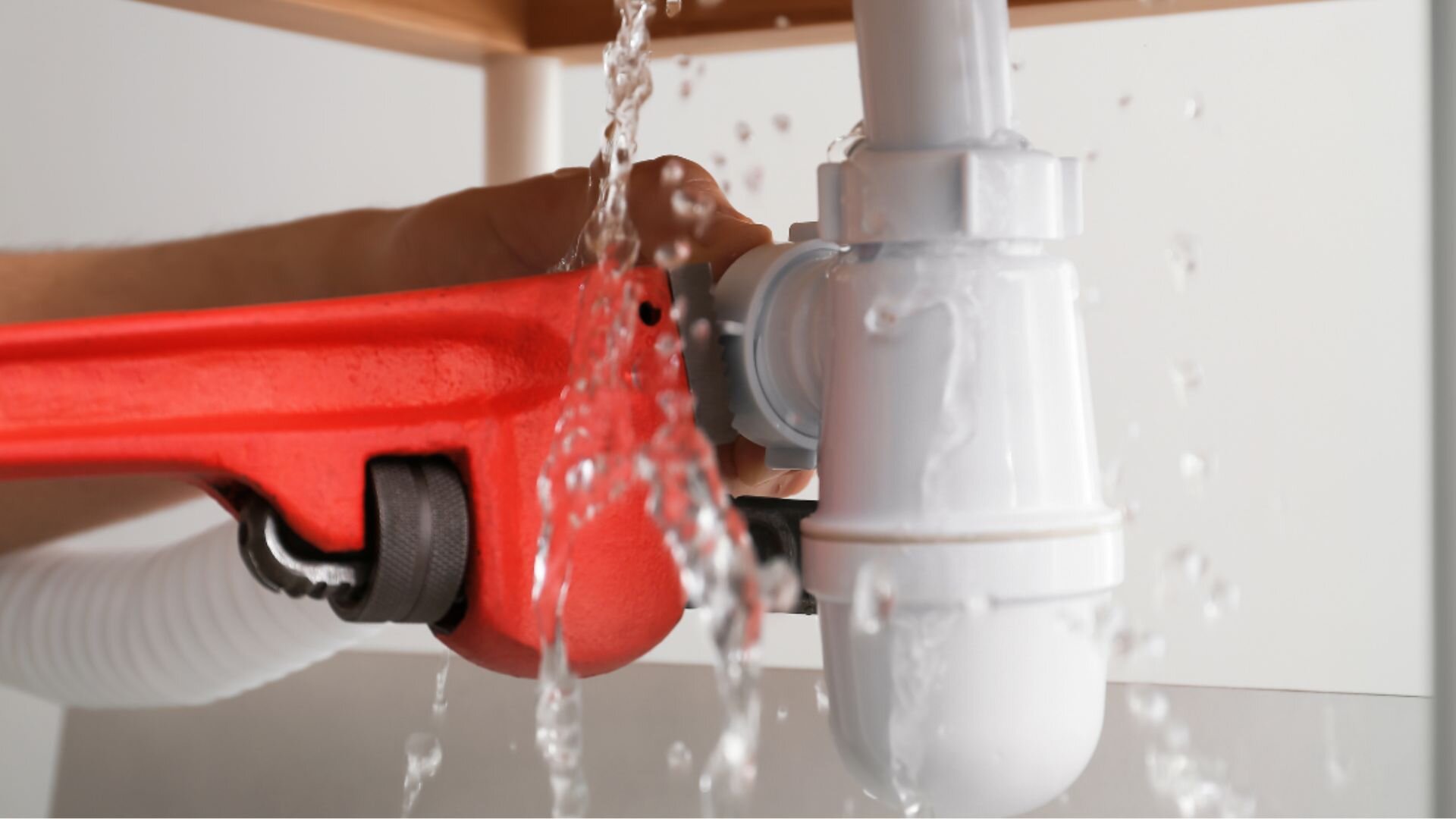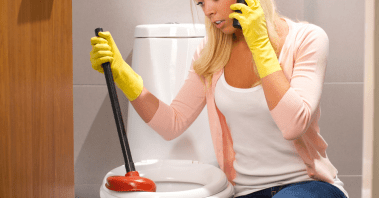Critical Plumbing Solutions: Actions to Follow Until A Plumber Arrives
Critical Plumbing Solutions: Actions to Follow Until A Plumber Arrives
Blog Article
This great article listed below relating to Plumbing Emergencies: Tips on What To Do Before is immensely entertaining. Check it out yourself and figure out what you think of it.

Pipes emergency situations can strike at any moment, triggering tension and prospective damage to your home. Whether it's a burst pipe, a clogged drainpipe, or a leaking faucet, knowing how to manage the scenario till a specialist plumbing technician shows up can save you from further complications. This article gives necessary emergency situation plumbing suggestions to help you minimize damages and gain back control during a plumbing situation.
Switch off the Water System
The initial step in any pipes emergency situation is to turn off the supply of water. For localized issues, such as a dripping tap or bathroom, turn off the shutoff near the component. In the case of a significant leak or ruptured pipeline, find your home's major water shut-off shutoff and turn it off quickly. Understanding the area of these shutoffs in advance can conserve useful time during an emergency situation.
Turn off Your Water Heater
In particular emergency situations, such as a burst pipeline, it's smart to shut off your hot water heater. This avoids overheating or damage to the device when water stops flowing. Switch off the power supply to the water heater (electrical or gas) and let it cool to prevent potential threats.
Briefly Stop a Ruptured Pipe
A burst pipeline can lead to substantial water damage in mins. To mitigate the concern:
Call a specialist plumbing quickly to deal with the trouble permanently.
Have an Emergency Situation Pipes Kit
Prepare a standard plumbing emergency package to manage small issues successfully. Your kit ought to consist of:
Having these devices handy can make a considerable difference in your capability to manage emergency situations.
Unclog Drains Pipes Safely.
A clogged drainpipe can be a discouraging and messy concern. Right here's how to tackle it:.
If these approaches don't function, stay clear of utilizing too much force, as it may get worse the blockage.
Handle Overflowing Toilets.
An overruning toilet can trigger prompt mayhem. Right here's what you should do:.
Address Small Leaks with Momentary Repairs.
Tiny leaks can quickly end up being substantial issues if left uncontrolled. Use these short-lived fixes till specialist aid gets here:.
While these solutions aren't long-term, they can assist reduce water loss and damage.
Handle Frozen Piping Meticulously.
In chillier climates, icy pipelines are a typical emergency. If you think a frozen pipeline:.
Know When to Call a Specialist.
While quick fixes can help temporarily, particular plumbing issues call for instant professional focus. Call a plumbing technician if:.
Without delay getting in touch with a specialist makes sure the issue is solved correctly and protects against further difficulties.
Avoid More Damage.
Taking fast action to decrease damage can conserve you time and money in the future. Here's just how:.
Final thought.
Pipes emergencies can be overwhelming, yet with the right understanding and devices, you can manage the circumstance properly until aid arrives. By switching off the water, addressing little leaks, and making use of short-lived fixes, you can minimize damage and keep your home safe. Keep in mind, these ideas are short-lived remedies; always consult a certified plumber to deal with the root cause of the problem. Preparation and quick thinking are your finest allies in any type of plumbing emergency.
8 Helpful Tips for Managing Plumbing Emergencies at Home
If your plumbing system hasn’t failed once, wait for it because almost everyone has a story to tell. Sometimes, it could be simple emergencies such as a leaking pipe, a blocked cistern, or even a big burst pipe. In situations like this, you need to have some handy tips to save you some money and from possible damages.
Take care of minor issues early.
Sometimes, you could have avoided an emergency by taking proactive measures while it was still early. Some major plumbing emergencies can be a result of an ignored minor issue. We recommend that you have items like plumbing tapes and other related items. A plumbing tape can allow you to manage minor leaks before the plumber arrives.
Cut off the water supply.
This tip is essential in almost any type of leakage problem. For problems like minor leakages in the toilet or kitchen, turn off the supply that takes water to the affected pipes. If the leakage is a major pipe, you must shut off the supply valve to the entire building. This will help you avoid flooding your home and neighbors if you share a flat.
Know your plumbing system
Folks typically move into a new apartment without understanding the water supply around the building. This can prove disastrous if a water emergency arises and the plumber is far away. The previous tip will prove useless if you don’t practice this one. More importantly, know where your water shut-off valve is located – you’ll need that knowledge to prevent potential home floods.
Have some common handy tools
There are lots of plumbing emergencies that you can handle without hiring a plumber. That’s why you must keep some tools available always. Some tools that you can use to fix simple plumbing emergencies easily include plumbing tapes, screwdrivers, thread seal tapes, plungers, pliers, tape measures, and rubber gloves.
Insulate your pipes from cold
You’ll save yourself from many plumbing expenses if you protect your water pipes from the cold. This is because of the harmful effects that cold weather can have on your pipes. During winter, your pipes can burst from being overly expected to freezing temperatures. So, make sure insulators are there to keep the pipes working correctly.
Avoid practices that will clog your toilet.
Many people indulge in practices that can damage the plumbing system of the entire building. One of these is when they use their toilet to dispose-off garbage. They flush all kinds of things, such as paper towels, bandages, hairs, female sanitary products, etc., down the toilet. This will block your toilet in the long run, incurring unnecessary expenditures. Dump such waste in the trash instead.
Check your dials regularly.
Sometimes, there could be leakages in your home without noticing them in time. So, constantly monitor your water meter dial. If the dial is reading when there is nobody using water, this is an indicator that there is leaking. Check for leaks immediately. Call a plumber as soon as possible if you can’t find any.
https://www.constructionplacements.com/8-helpful-tips-for-managing-plumbing-emergencies-at-home/

We were made aware of that editorial on through a buddy on a different web blog. So long as you enjoyed our article please do not forget to share it. Many thanks for going through it.
Click Here Report this page